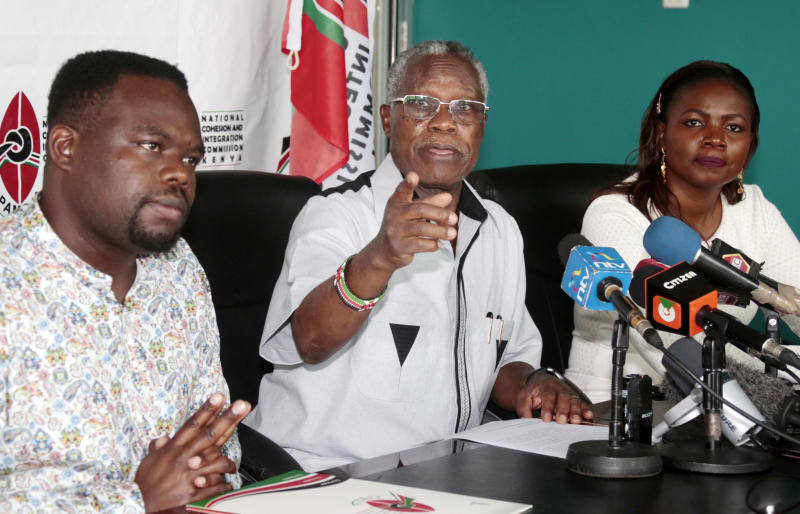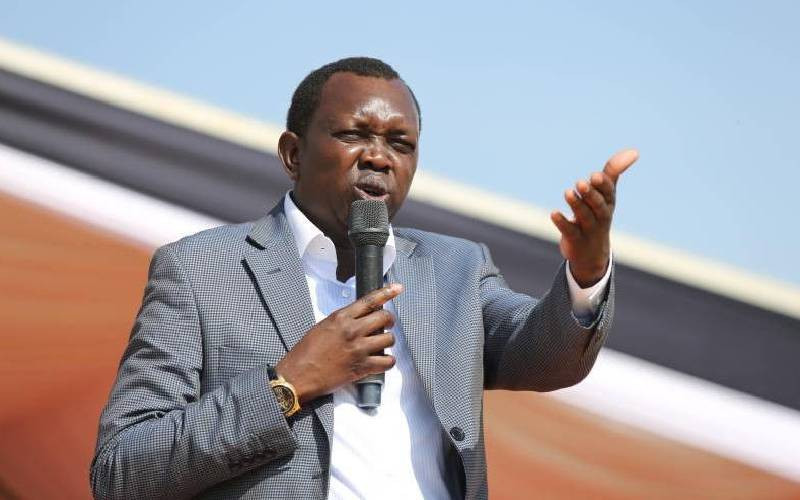National Cohesion and Integration Commission (NCIC) Chairman Dr Samuel Kobia (centre) addressed the media at their Head Office in Nairobi on Friday March 18, 2022 on hate speech. [Boniface Okendo, Standard]
×
The Standard e-Paper
Kenya’s Boldest Voice






